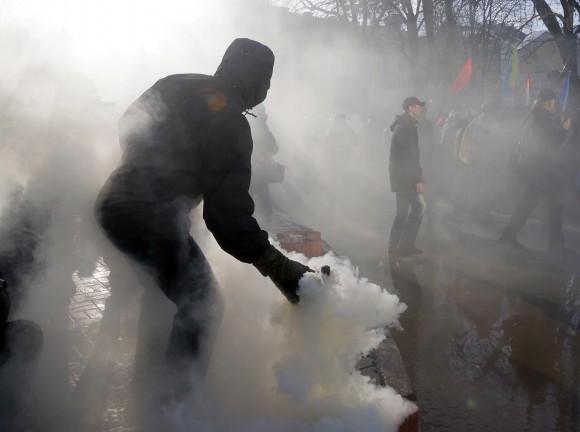MOSCOW—The Kremlin on Monday defended its decision to recognize passports issued by separatist authorities in eastern Ukraine, saying it came as a response to Ukraine’s blockade of rebel regions.
President Vladimir Putin’s spokesman, Dmitry Peskov, also shrugged off a peace plan that a Ukrainian lawmaker reportedly tried to peddle to U.S. President Donald Trump’s administration.
The statements came as demonstrators in the Ukrainian capital of Kiev marked the third anniversary of events that led to the ouster of the nation’s Russia-friendly president in 2014 with protests and wreath-laying.
The weekend move by Putin to recognize passports and other documents issued by rebel authorities has drawn sharp criticism from Ukraine, which called it a violation of a 2-year-old peace deal.






